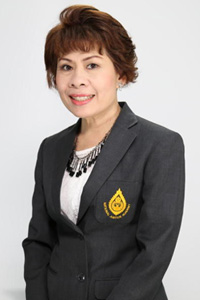In a letter to junta leader Prime Minister Prayut Chan-o-cha, Privy Councillor Tanin Kraivixien's principal message was the urgent need to punish corruption.
In a letter dated Oct 15 to offer his opinions on reform, the privy councillor and former prime minister pointed out that corrupt people believe they can flee overseas to enjoy their loot. He wrote that governments have so far failed to put a stop to these escapes, which is partially why anti-corruption measures have failed.
He also said that for those countries which allow corrupt politicians and officials to live and spend money, it is tantamount to them receiving ill-gotten gains from thieves.
The government should reform extradition and asset seizure procedures to ensure corrupt people cannot enjoy their stolen money anywhere in the world.
Anti-corruption measures are also weak because corrupt politicians are allowed to return to politics after their five-year ban has expired, he noted.
"We must remember our past pains and not allow the same mistakes to happen again," he wrote.
"One must do one's best when one is in the position of running the country. But if they have done great damage to the country and destroyed public trust, they should never have an opportunity to return to do harm again no matter how much good they have done in the past."
The privy councillor's advice is actually in line with the interim 2014 charter.
Its Section 35 makes it clear that the charter drafters must set up constitutional mechanisms to punish corruption both in the public and private sectors.
While there must be mechanisms to contain state abuse of power, the new charter must not allow banned politicians and those convicted of corruption charges to run in elections.

Tanin: The corrupt think they can flee
Moreover, the new charter must prevent government officials and politicians from being proxies of "illegal individuals or groups".
Gen Prayut promptly forwarded the letter to the charter drafters for consideration.
Meechai Ruchupan, chairman of the Charter Drafting Committee (CDC), also showed a positive response.
Mr Tanin's recommendations show his concerns for the country, said Mr Meechai, and the CDC is already intent on tackling corruption in line with Section 35.
Plans are under way to strengthen banning measures.
For example, politicians must be relieved of their duties immediately once charged with corruption by the National Anti-Corruption Commission before court procedures begin.
Mr Tanin's letter certainly struck a chord with public consensus that corruption is the country's biggest problem.
Democracy has been long abused by corrupt politicians who see their profession as a form of investment.
Political rivals are attacked and policies are compromised to serve vested interests.
There are therefore demands for the new charter to put a stop to politicians' abuse of power. His advice echoes growing public demand for stronger and more effective anti-corruption measures. Due to very lengthy court procedures, questionable politicians can still abuse their power while in office or for as long as the trials last.
The message is clear: A five-year ban for "bad" politicians is not enough.
But it is also clear that any measures to ban politicians will not be easy. In the past, those who face a five-year ban can still operate through nominees.
Not everyone is happy with Mr Tanin's moves, particularly Pheu Thai politicians. Echoing their concerns, Jatuporn Prompan, chairman of the United Front for Democracy Against Dictatorship (UDD), said anti-corruption measures must be systemic and non-discriminatory.
Selective anti-graft pursuit is playing partisan politics, Mr Jatuporn charged. He was apparently referring to the National Anti-Corruption Commission (NACC) which is in charge of indictments.
There is deep resentment among Pheu Thai politicians against the NACC which is believed to be pursuing cases against Pheu Thai only while ignoring corruption charges against its rival party through expiration of the statute of limitations.
Is this a signal to the charter drafters to ban Pheu Thai from running in the next election? Worachai Hema, former Pheu Thai MP, Samut Prakan, posed the question which echoed his peer's sentiments. Pheu Thai has been unfairly singled out for corruption charges, he said. The latest case in point concerns former prime minister Yingluck Shinawatra's controversial rice-pledging scheme. The government has issued an administrative order to seize her assets even though she has not been found guilty in court.
Whether or not the CDC will respond to the privy councillor's call for a lifetime ban on corrupt politicians remains to be seen. Such a call only reflects general concerns for the country, he said. Apart from stronger anti-corruption measures, there is also a need to ensure transparency and fairness of anti-corruption agencies to restore public trust, he said.
Amid an avalanche of "advice" from all sectors, the CDC is racing against time to complete the draft charter by April next year under the political roadmap. August is set for a referendum with the general election set for mid-2017.
The Bangkok Poll shows that 70% of respondents hope the new charter will eventually lead to political reform and reconciliation. The CDC should not disappoint the people.
Nattaya Chetchotiros is assistant news editor, Bangkok Post.
